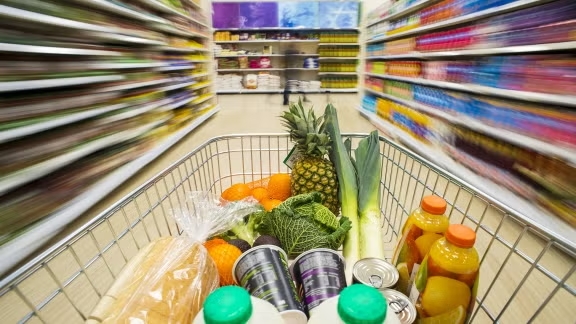The direct solution is clear: businesses in the food and beverage sector must embrace flexibility, technology, and strategic sourcing to stay competitive. Wholesale demands are evolving, influenced by global supply shifts, consumer expectations, and digital innovations. Companies that adapt quickly not only maintain stability but gain a competitive edge in a crowded market.
Why Adapting to Wholesale Demands Matters
Think of the food and beverage supply chain as a living organism. Every link—from producers to wholesalers to retailers—needs to respond to stressors in real time. Failing to adapt leads to delays, rising costs, and dissatisfied customers.
For example, a sudden spike in organic produce demand can leave unprepared businesses scrambling. Those who understand market shifts and adjust sourcing strategies survive—and often thrive. Wholesale demands aren’t just numbers—they reflect consumer trends, regulatory changes, and global economic pressures.
The Impact of Consumer Trends on Wholesale Demands
Consumer preferences drive wholesale requirements more than ever. Health-conscious products, plant-based alternatives, and ethically sourced items are reshaping the market. Retailers and restaurants now demand consistent supplies of trending items, forcing wholesalers to adjust production and distribution strategies.
Take plant-based beverages, for instance. European cafes and stores increasingly request almond, oat, and soy options in bulk. Wholesalers must not only source these products efficiently but ensure consistent quality. Those who fail to meet demand risk losing buyers to more agile competitors.
Challenges Facing the Food and Beverage Sector
Several challenges pressure the sector to adapt:
- Supply Chain Disruptions: Weather, transport strikes, and geopolitical tensions can delay shipments.
- Cost Volatility: Energy, labor, and raw material costs fluctuate unpredictably.
- Regulatory Changes: Food safety, sustainability, and labeling regulations vary across Europe.
- Digital Transformation: Businesses must adopt technology to manage orders, track stock, and forecast demand.
These challenges make agility essential. Companies that anticipate shifts and diversify sourcing mitigate risk, maintaining a steady flow of products even during global disruptions.
The Role of Wholesalers in Adapting Supply
Europe wholesalers play a critical role in managing these dynamics. They act as intermediaries, ensuring that products reach businesses on time while maintaining quality standards. Beyond logistics, modern wholesalers advise clients on market trends, sustainability practices, and inventory management.
Digital tools, such as a wholesale marketplace, amplify this impact. Businesses can compare prices, verify product availability, and even explore international suppliers through a B2B wholesale marketplace or marketplace Europe, ensuring access to high-demand items without lengthy delays.
Digital Platforms Driving Adaptation
Digital marketplaces are game-changers for the food and beverage sector. They provide transparency, streamline procurement, and allow businesses to respond to demand spikes faster.
For instance, a small restaurant in Germany can source trending beverages from Italy or Spain through a single platform. Real-time data helps buyers adjust orders based on consumption patterns, reducing waste and maximizing profitability. In this way, technology is not just a convenience—it’s a competitive necessity.
Strategies for Adapting to Changing Demands
Adapting successfully requires a combination of foresight, relationships, and innovation. Here’s how businesses navigate shifting wholesale landscapes:
1. Diversify Suppliers
Relying on a single supplier is risky. Diversifying across local and international partners ensures continuity even during disruptions.
2. Embrace Data and Forecasting
Digital tools allow businesses to anticipate demand, track trends, and optimize orders. Forecasting helps prevent shortages or overstocking.
3. Build Strong Partnerships
Long-term relationships with wholesalers secure better pricing, priority access, and reliable delivery schedules.
4. Focus on Sustainability
Eco-conscious consumers drive demand for responsibly sourced products. Aligning with sustainable suppliers strengthens brand reputation and meets regulatory standards.
5. Maintain Flexibility in Operations
Flexible contracts, adaptive menus, and dynamic pricing allow businesses to respond quickly to market changes, minimizing financial risk.
Case Study: A European Beverage Retailer
Consider a mid-sized beverage retailer in France. Facing unpredictable demand for craft sodas, they leveraged a B2B wholesale marketplace to source products from multiple countries. By diversifying suppliers and using digital forecasting tools, they reduced stockouts by 30% and maintained consistent product quality.
This example shows that adaptation isn’t just reactive—it’s proactive. Businesses that anticipate trends and act quickly turn potential disruptions into growth opportunities.
Balancing Cost, Quality, and Reliability
Adapting to changing wholesale demands isn’t just about securing products—it’s about balance. Price, quality, and reliability must align with operational goals. A supplier offering low prices but inconsistent delivery can be more costly than a slightly higher-priced but dependable partner.
Businesses that evaluate total value, rather than just cost, strengthen both supply chains and customer satisfaction.
Future Trends in Food and Beverage Wholesale
Looking ahead, three trends will dominate adaptation strategies:
- Sustainability: Eco-friendly sourcing, ethical production, and reduced waste will become baseline expectations.
- Digital Integration: AI, real-time analytics, and platform-based ordering will enhance decision-making and responsiveness.
- Consumer-Centric Supply Chains: Businesses will increasingly source products aligned with evolving consumer preferences, from plant-based drinks to artisan offerings.
Those who embrace these trends early gain competitive advantages, while laggards risk losing market share.
Conclusion
The food and beverage sector faces continuous pressure from evolving wholesale demands, global supply challenges, and shifting consumer expectations. Success hinges on flexibility, technology adoption, and strategic partnerships with wholesalers.
By diversifying suppliers, leveraging digital marketplaces, forecasting demand, and prioritizing sustainability, businesses can not only survive but thrive. Adaptation isn’t optional—it’s a strategic imperative that turns market volatility into opportunity.
FAQs
1. Why is adapting to wholesale demands important in the food and beverage sector?
Because consumer trends, global supply shifts, and regulatory changes constantly impact product availability and pricing.
2. How do digital marketplaces help businesses respond to changing demand?
They provide real-time data, supplier comparisons, and access to international products, enabling faster and smarter procurement decisions.
3. What role do wholesalers play in supply chain adaptation?
Wholesalers ensure reliable delivery, maintain quality standards, and advise clients on market trends and inventory management.
4. How can businesses balance cost, quality, and reliability?
By evaluating total value, diversifying suppliers, and partnering with dependable wholesalers rather than focusing solely on price.
5. What future trends will shape adaptation in the food and beverage sector?
Sustainability, digital integration, and consumer-centric supply chains will define how businesses respond to evolving wholesale demands.


